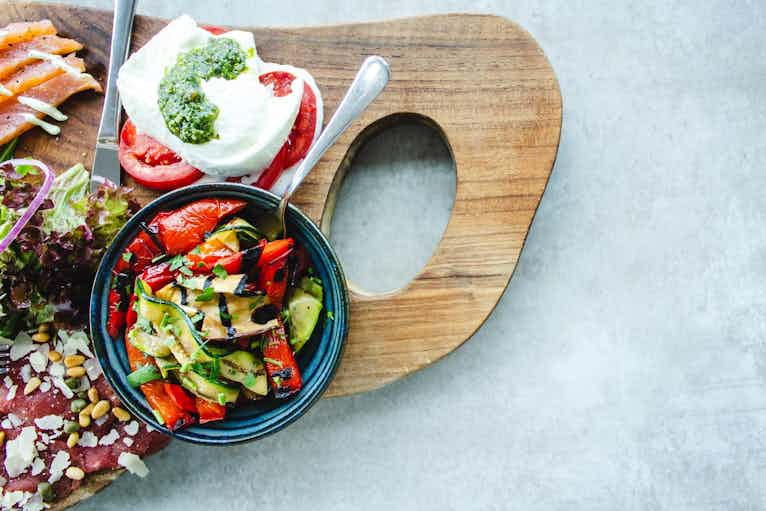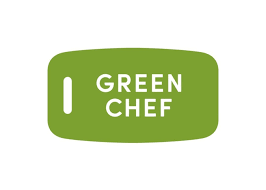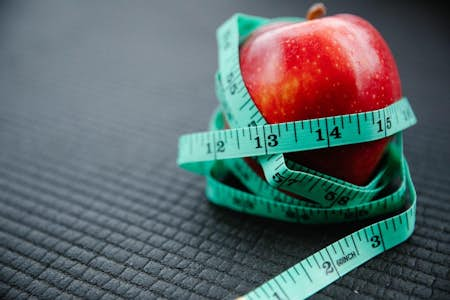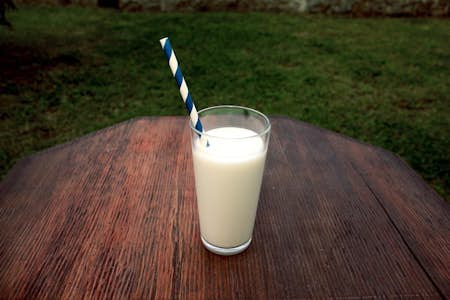We have more nutritional knowledge today than at any time throughout history. We have access to a wider variety of foods and can pinpoint diets that work geographically and historically. So why are we as a nation getting larger?
Part of the problem is the availability of high-calorie foods; it has never been easier to get a Big Mac! So partly, the issue is down to lifestyle, but lousy diet advice is undoubtedly a factor, too. But what else is at play?
Frustrated with food waste or don't know where to start with a shopping list? Try a food subscription box to wash those worries away and put your diet - and finances - on the right track!
Why is the world gaining weight?
If you asked 100 fitness experts why the world is gaining weight, you would get 100 different answers. Some may blame sugar or sweeteners. Others will say that we are lazier than before and have more sedentary lifestyles.
You may hear that weight gain is due to fast and processed food or that the fitness expert believes in the Paleo diet.
What is the actual answer?
Everything mentioned so far has had an effect. But global weight gain is caused by a combination of factors, rather than just one smoking gun.
- Fast food - It is calorie-dense, meaning that you can consume a lot of energy in just a few bites. It is cheap, easy to get hold of, and is designed to taste delicious.
- Sugar - Sugar is not as bad as it is portrayed, but like fast food, sugar is also calorie dense, and too much can lead to weight gain.
- Highly processed food - High in calories, low in nutrients, and easy to overeat.
- Lifestyle - There are fewer manual jobs and many more that require you to sit down while working. This has led to an increase in people who lead sedentary lifestyles. This means that people are burning fewer calories per day, which leads to a calorie imbalance and weight gain.
- Portion sizes - Perhaps the most overlooked factor. The size of the plates that we serve for lunch and dinner are larger now than they were historically. Our portions of meat are larger, as are our portions of rice, pasta, potatoes. If your dinner is 15% larger than that of someone in the 1950s, then you are likely to be consuming 15% more calories.
- Price of meat - This is not an argument for vegetarianism or veganism. Eating meat has many benefits and can make up part of a healthy diet. But too much high-fat meat such as beef mince, sausages, and deli meats will lead to weight gain. A century ago, meat was a luxury; today it is a staple.
- Misinformation - Nutrition can be pretty straightforward. Eat fewer calories than you burn, focus on eating lots of fruit and vegetables, eat lots of protein and fibre. Yet people are constantly trying to reinvent the wheel. This has led to a lot of confusion and bad diets.
What is the best diet for weight loss?
Short answer: A slightly altered Mediterranean diet that suits your environment and involves simple lifestyle changes.
Long answer...
No matter your intentions, nobody wants a weight loss diet that lasts forever. So first, you want a weight loss diet that helps you lose excess body fat. Then, you want a diet that can help you maintain that loss.
The keto diet is a good weight loss diet because you will lose weight fast. But it is unsustainable for most people and is overly complicated.
The same thing goes with intermittent fasting, paleo diets, the Atkins diet, the South Beach diet, and all the other diet fads and eating plans that have taken the world by storm over the past 20 years.
These diets are perfect for short-term weight loss, but they have no longevity.
Think about how massive the Atkins diet was in the early 2000s, yet when was the last time you heard anyone following it?
The truth is that weight-loss diets are not great in the long term. Instead, you should be looking at a diet that encourages good nutrition, where reaching a healthy weight is a welcome side effect alongside other health benefits.
Obviously, if you are currently obese or heavily overweight, your priority will be weight loss. But the good news is that following any nutritious diet will lead to excellent results, provided you find a diet that you can stick to.
Martina Slajerova from Keto Diet App told us: "Mediterranean diets are rich in healthy fats and that is why they are so good at preventing chronic disease and supporting longevity. At the same time the keto diet is ideal for those who want to lose body fat fast and reduce inflammation. However, the keto diet can be quite restrictive and for most people it's unnecessary in the long term. Once maintenance is reached, carbs can slowly be added back as long as they are kept at a lower level. That’s why a whole foods based, low-carb, Mediterranean diet is the ideal approach for most people who want to maintain their weight and optimal health in the long term."
What makes the Mediterranean diet so good?
The Mediterranean diet is universally respected in fitness and nutrition circles and has been seen as the gold standard of diets in the nutrition world for quite a long time.
But what is it that makes the diet effective? There are several factors, and some may surprise you!
- Focus on fruits and vegetables - the Mediterranean diet is much more plant-based than people assume. It is full of healthy foods and fruit and vegetable dishes, making it much easier to hit your recommended daily intake. These foods are also high in antioxidants, further improving your health.
- Seafood protein - While meat is by no means bad for you, too much meat can have implications for your health and for weight gain. Seafood is usually a leaner source of protein and contains many nutrients such as omega-3 fatty acids. The Mediterranean diet includes much more fish and seafood than it does meat. So you can wave goodbye to needing to take fish oil supplements!
- Focus on cooking - Unlike most Western diets, Mediterranean diets encourage more home cooking or communal cooking. Big family meals are much more common. This can reduce the amount of highly processed foods you eat and increase the volume of calorie-dense whole foods you consume.
- Cultural importance - The foods eaten in Mediterranean countries (Italy, Spain, Greece, Cyprus, Southern France) are almost always locally grown and have a cultural history. In addition, meals are often ritualised, with big family meals in the middle of the day.
So it's not so much the specific foods that make the diet healthy, but the culture and eating patterns that come with it. The ratio of plant-based foods to meat, dairy, and grains will vary among the different regions, but it is usually a better ratio than we have in the UK.
But before we all rush off to live in Spain or Greece, it is essential to point out that the Mediterranean diet we talk of is not really a thing. Sure, many people in these regions eat like this. But there are also 535 McDonalds in Spain.
Spain also has one of the highest rates of obesity in Europe, with 23.8% of people classified as obese.
Two Mediterranean countries, Malta and Turkey, top the charts. However, it should be pointed out that Italy has the second-lowest rate of obesity in Europe. Denmark is actually top of this particular measure, so perhaps a Nordic diet may also be worth looking at?
The point here is not to dismiss the Mediterranean diet but to place it in some context. The diet is not an indication of what everyone in the Mediterranean is eating. It is a diet inspired by these countries and an excellent foundation for developing your own meal plan.
How can you follow your own version of the Mediterranean diet?
If you live in Milton Keynes, your opportunities to eat locally caught shellfish are limited. Nor do you have to spend 3 hours learning how to make your own pasta.
You need to learn what works in the diet and apply it to your lifestyle.
When you're over 50, you may have more time spare to prepare your own meals. Take this opportunity. Improving your cooking skills will make a massive difference to your lifestyle. If you can make sprouts taste as good as a pizza, your diet will be far easier to follow!
Follow these rules to create your own version and improve your overall health:
- Protein with every meal - This is a great rule to follow as protein is essential as you age. Finding protein-rich foods for lunch and breakfast will really help your daily intake increase.
- A portion of fresh fruit and veggies with every meal - As with protein, adding fruit and vegetables to your lunches and breakfast will transform your diet.
- Increase the variety of your protein sources - Fish is a good start; you can also look at plant-based protein sources such as beans, nuts, and legumes.
- Eat complex carbohydrates - Bin the white bread, rice, and pasta and eat whole-grain versions instead!
- Plan your meals in advance - Poorly planned meals can often lead to adding convenience foods that are high in calories and low in nutritional value. Grab a notebook and a couple of recipe books, and your diet will improve overnight.
Remember, part of what makes the Mediterranean diet work is the culture surrounding it. Learn to love cooking and spending time eating with friends and family, and your eating habits will improve naturally. Variety in protein, vegetables, and meals is essential.
The meals can come from any culture; they don't need to be Italian, Spanish, or Greek. They just need to be filled with healthy ingredients and made with love.
Get yourself some high-quality, healthy fats such as olive oil, swap the chips for whole grains, eat less red meat and more fish, and get lots of lean meat and lean protein into your diet.
What is the best diet for the environment?
While dieting for your health and vitality is crucial, you may also have nobler concerns such as the environment and the state of the globe.
Is there a diet that is best for the environment? Any diet that limits low-value meat will be better for the environment. Cattle farming in Brazil, America, and China takes a massive toll on the environment. Farmers burn forests to have more space for their cattle to graze.
Does this mean that you need to cut out all meat? Not really. British farming is nowhere near as harmful to the environment as the above countries. Local free-range meat will still affect the environment, but to a much lower extent than mass-market meat from abroad.
Many people say that you should shop organic if you want to improve the environment, as pesticides can be harmful. But it is a lot more complicated than that. Organic plants are much less efficient than non-organic plants. Meaning that more water and more space is required to grow fewer plants.
Interestingly, the best solution is probably genetically modified plants, which can be grown to be highly water-efficient, take up less space, and require fewer pesticides to protect. But there is a strong aversion to GM products in the UK.
Why high protein diets are essential for older people
Everyone can benefit from increasing the amount of protein in their diet, no matter their age. But older people have more need of protein. This is because of a condition called sarcopenia.
This is where muscle mass and strength will decline naturally over time. By the time you have reached 80, you can expect to have lost 50% of your muscle mass. Scientists aren't exactly sure what the cause is, but possible causes include:
- Declining testosterone in men
- Chronic inflammation
- Reduced movement (exercise)
- Poor nutrition
Another theory is that our bodies find it harder to use lysine for muscle building and maintenance as we age. Lysine is one of the amino acids that make up protein. So the idea is that we need to eat more protein to get the same results as someone younger.
Whatever the reason, making sure that you consume more protein in your diet is a smart move when you're over 50. This can help reverse muscle loss, which will help you to maintain a higher metabolism, keep your body fat percentage lower, and lead a healthier lifestyle.
What is the best diet over 50?
Any primarily plant-based diet (can contain meat, but lots of fruit, vegetables, and pulses) will be effective for someone over 50. Diets high in protein are crucial. As are diets that are low in processed foods.
If you want to follow a specific diet, then the Mediterranean diet is one of the best out there. It's generally considered heart-healthy and even allows you to have a glass of red wine! But make sure that it fits your lifestyle. If you're conscious about reducing your meat intake, then the flexitarian diet may be worth exploring, but you don't necessarily need to follow a full-on vegan diet to improve your health.
Try not to follow any diet that requires immediate, sweeping changes to your life. "Low-calorie" or "low-carb diets" rarely work in the long term and can be overwhelming and unrealistic even in the short term. Instead, making small changes to your already established habits is much more effective.









